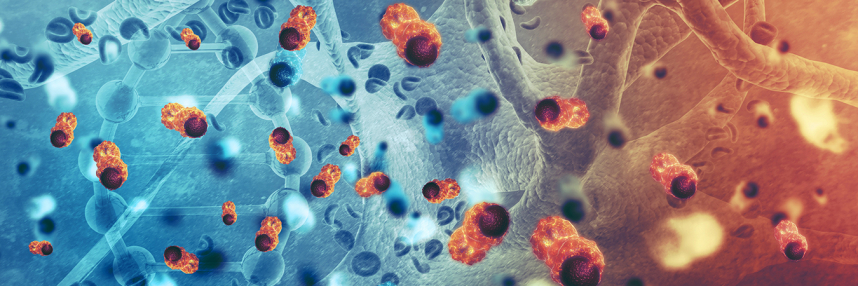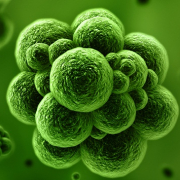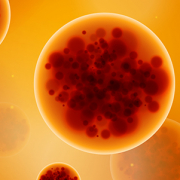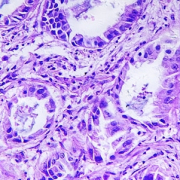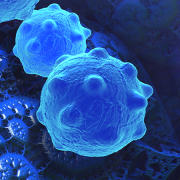Bowel cancer: What role do our genes play?
We examine two genetically inherited syndromes that increase our risk of colorectal cancer
Colorectal cancer, also known as bowel cancer, is the fourth most common type of cancer in the UK. Despite this, until recently it was not as widely discussed as other types, such as breast or lung cancer. Now, however, its profile is growing thanks to the work of campaigners such as Dame Deborah James, who died in June 2022 aged 40 after being diagnosed with an incurable form of the condition in 2016.
A person’s risk of developing colorectal cancer is influenced by lifestyle factors, such as a low-fibre diet and lack of regular physical activity; however, as is the case with breast cancer, some inherited genetic variants increase the likelihood of a person developing colorectal cancer. In this article, we look at two genetically inherited syndromes and examine how and why they increase a person’s risk of this particular cancer.
Lynch syndrome
A person who inherits Lynch syndrome will have a high lifetime risk of colorectal cancer, as well as increased risk of some other types of cancer. It can be caused by variants in one of four different genes (MLH1, MSH2, MSH6 and PMS2) that code for essential DNA repair proteins.
In all four genes, only one affected copy is needed to cause the increased cancer risk. This means that Lynch syndrome is inherited in a dominant pattern in families.
People who have Lynch syndrome are generally advised to have a colonoscopy every two years so that cancers can be identified and removed at an early stage. For affected women, a hysterectomy and removal of the ovaried and fallopian tubes are often considered too, because there is a significant risk of endometrial and ovarian cancer.
MUTYH-associated polyposis
Another inherited syndrome that increases a person’s risk of developing colorectal cancer is MUTYH-associated polyposis (MAP). This syndrome has recently been examined in a new study published in Nature Communications.
Unlike Lynch syndrome, a person needs to inherit both copies of the affected MUTYH gene to have an increased risk of colorectal cancer. This means that MAP is inherited in a recessive pattern, as opposed to a dominant pattern.
The MUTYH gene is involved in DNA repair, but in a different way from the genes that cause Lynch syndrome. MLH1, MSH2, MSH6 and PMS2 – the genes that cause Lynch syndrome – are all involved in DNA mismatch repair, which means they fix errors that are introduced when the DNA is copied. MUTYH, on the other hand, codes for a protein that repairs a type of DNA damage caused by free radicals. These are atoms or small molecules that are not part of a stable molecule and will therefore try to bond with other chemical structures they encounter.
The study used whole genome sequencing to look at cells from healthy people with MAP. These cells displayed greater variation rates than would be found in healthy tissue from people with normal MUTYH genes. It appears that these higher rates provided the conditions for pre-cancerous growths to occur, therefore increasing the risk of cancer.
“This is an exciting development in our understanding of the inherited causes of colorectal cancer,” said Wellcome Sanger Institute clinical PhD fellow Dr Phil Robinson, who authored the study. “Studying healthy cells from individuals with inherited cancer conditions opens a window into the mutational processes responsible for cancer development and is helping us to better understand cancer risk.
“By gaining a deeper understanding about these processes, it may help us to predict the risk of colorectal cancer in those living with this genetic condition and potentially identify treatments for at-risk individuals.”
If you’d like to learn more about how genomic testing is being used in cancer care, take a look at our cancer genomics webpage.
–


